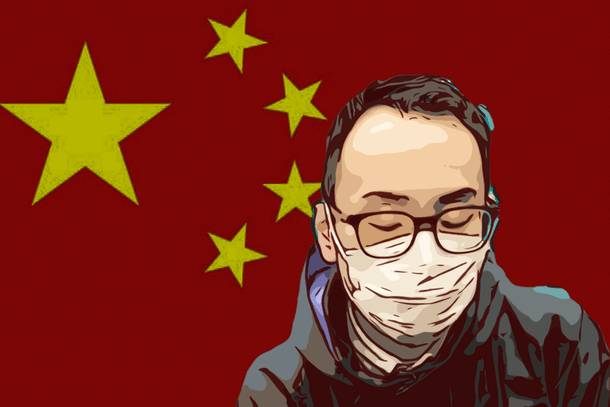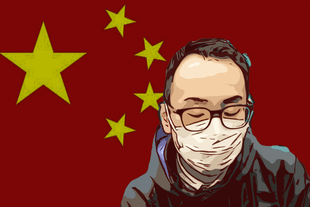News Brief
China Is Sticking To Its Stringent Zero-Covid Strategy As Officials Confirm That Outbreak Is Developing Rapidly
Bhaswati Guha Majumder
Nov 01, 2021, 05:23 PM | Updated 05:22 PM IST
Save & read from anywhere!
Bookmark stories for easy access on any device or the Swarajya app.


From Australia to South Korea and across the Asia Pacific, the last "zero-Covid" bastions are relaxing restrictions and opening borders—with one big exception and that is China. The country where the infection cases were first registered.
The latest Covid-19 outbreak in China is spreading quickly, according to a health official. Reports stated that officials urge increased monitoring at border crossings amid rising cases in a northeastern border city caused by the virus brought in from abroad.
Between 17 October and 29 October, the National Health Commission (NHC) recorded 377 domestically transmitted cases with documented symptoms.
While the rest of the world tries to figure out how to live with Covid-19, China has maintained its zero-tolerance policy, advising residents to be vigilant near border areas and ports to prevent sick arriving travellers from transmitting the virus to locals.
The NHC spokesperson Mi Feng said on 30 October: “Within the past 14 days, 14 provincial areas have reported new locally transmitted cases or asymptomatic carriers. The outbreak is still developing rapidly, and the virus control situation is severe and complicated.”
Meanwhile, another NHC official Wu Liangyou said: “The outbreak has exposed the laxity of mind among some local authorities.”
Heihe, a small northeastern metropolis of 1.3 million inhabitants on China's side of the Amur River near the Russian border, reported 26 local cases on 29 October, up from 9 on 28 October and 1 on 27 October.
Wu said at a news conference that since the virus is still spreading in neighbouring countries, China, particularly ports of entry, should intensify test screening of people at high risk of infection and better surveillance of any flare-ups.
According to him, surveys and virus sequencing results revealed that the cluster in Heihe was unrelated to a current outbreak affecting primarily the northern portions of China, implying that a new source of the virus is linked to abroad.
The NHC said last week that many local infections found in the north and northwest portions of the country since 17 October could be traced back to a virus brought in from elsewhere.
However, amid the outbreak, China's border towns, many of which have limited resources, have been hit worse than wealthier cities. For example, due to repeated outbreaks, the southwestern city of Ruili, which borders Myanmar, has been hit by some of China's strongest virus measures that have harmed its previously thriving jewellery trade, which was a foundation of its meagre economy.
Measures And Motive
While talking about vaccination in the country, Wu said that China is planning to vaccinate all children aged 3 to 11 by the end of December 2021, except those with medical complications.
Last week, the other official Mi confirmed that as of 29 October, China has given 1.07 billion people complete vaccine doses—which accounts for about 75.8 per cent of the country’s population.
But since the virus is still spreading, officials in major cities have promised stringent virus limits for important international events. According to reports, Chinese athletes and support staff must receive Covid-19 vaccine booster shots in order to properly host the Winter Olympic Games in February 2022. Booster jabs are also suggested for foreign athletes, but it is not compulsory.
The Winter Olympics is one of the key reasons behind China's reluctance to reopen its borders. The Chinese government is unlikely to desire a replay of the confusion and postponements that characterised the build-up to the Tokyo 2020 Summer Olympics.
According to Steven Tsang, director of the SOAS China Institute, the Winter Olympics isn't the only key event on Beijing's agenda next year. The Chinese Communist Party will conduct its twentieth Congress in November, a twice-decade mass gathering of the country's leadership where President Xi Jinping is likely to secure a third term.
Tsang stated that Jinping did not want any indication that the virus was out of control inside the country before addressing the Congress in November next year. He believes that Jinping's political ambitions are one of the reasons the country's strict measures are being extended, regardless of the harm they may cause.
Zhengming Chen, a professor of epidemiology at the University of Oxford, said it was also plausible that the country's leaders were sceptical of the efficacy of Chinese jabs. In international trials, one of the most regularly utilised shots, Sinovac, was proven to have substantially lower levels of efficacy compared to other foreign vaccines.





